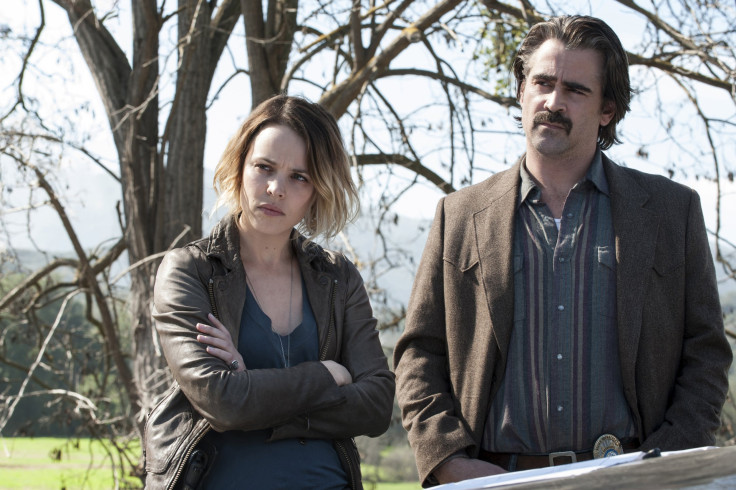'True Detective': Is It Too Soon To Say The Second Season Just Sucks? (It's A Matter Of Debate)

The critical response of the second season of “True Detective” has been lukewarm at best. And, the reception hasn’t improved much five episodes in. A divide between critics and lay viewers has risen that’s raised a question for television criticism in the modern age: Should critics hold judgement until they have seen an entire season?
The age of binge-viewing and Netflix-style single-day releases of a whole season's worth of shows has brought about a new debate about criticism. Should a season of shows, like "True Detective" be judged by one or just a few episodes, or is it a work that should be considered as a sum of all its 13-episode parts?
Some vocal "True Detective" fans on Twitter and in the comments sections of advanced reviews and recaps are arguing that critics should withhold judgement until they've watched the entire season. “I guess my qualm has more to do with getting ahead of the bus so to speak by posting a review of a TV show without actually seeing the whole thing, and before audiences have had a chance to see the entirety of what you’re talking about (ep. 2-3),” a commenter on The Verge’s review of the premiere wrote.
Television critics, who panned the series based on three episodes HBO sent in advance, argue you can still get a sense of a season from a small sample. And besides, reviewing individual shows is how it has always worked. That and HBO didn't release "True Detective" all at once; it is coming out on a weekly basis, just like traditional episodic TV.
This isn't exactly a new debate, but its particularly hot around "True Detective," which has sharply divided critics and fans.
"It's happening on a grander scale with True Detective season 2 because the reviews (including mine) have been so negative," Alan Sepinwall, Hitfix's TV critic, told the International Business Times, noting that this was stark change from the first season's mostly positive reception for both critics and fans alike. "And now some fans are still loving it [in the second season], and the critics aren't, and this is an easy and lazy card to play."
Ahead of the June 24 premiere, the second season of the Nic Pizzolatto's anthology drama was criticized for being humorless, featuring stilted dialogue and an incomprehensible plot. Fans, however, had faith that these were just issues that were specific to the premiere and that the show just needed time to develop. Basically, it was too early to walk away.
As Variety's Brian Lowry notes, this is a common complaint from lay viewers, who are watching television shows differently than critics. "You [critics] are having a different experience with it than someone who commits to it in advance and says, 'I'm going watch the entire thing and appraise it at the end,'"
In an ideal world, critics would have an opportunity to watch an entire seasons before passing judgement, but that's not what happens in reality. Networks rarely send out entire seasons to reviewers. (NBC's "Aquarius" is a notable and recent exception).
"True Detective's" second season is more than halfway through, and fans' criticism of how the show is being reviewed still persists. Now, some "True Detective" fans are arguing that critics shouldn't even judge the show on a weekly basis in weekly recaps and reviews.
@sepinwall I just don't get the point of criticizing it on a holistic level when you don't have the full picture of the story.
— Mike Whalen (@MikeWhalen4) July 20, 2015Focusing on the whole is a product of the ever-changing television landscape. Sepinwall attributes this rejection of weekly recaps and emphasis on treating television seasons as a unit to two thing: the rise of binge-viewing (including both new shows released by Amazon and Netflix and old shows that easily available for repeat viewing), and David Simon's, the creator of "The Wire," campaign against recaps. In an interview with HitFix, Simon argued against weekly recaps because "You would never see anyone review a novel in similar fashion."
"It's one thing for Simon to say you can't entirely see the full picture of a 'Wire' season after a handful of episodes — which I agree with — and another to say that you can't point out bad dialogue, bad acting, and bad storytelling choices in the micro just because you haven't gotten to the macro view yet," Sepinwall said.
© Copyright IBTimes 2025. All rights reserved.






















